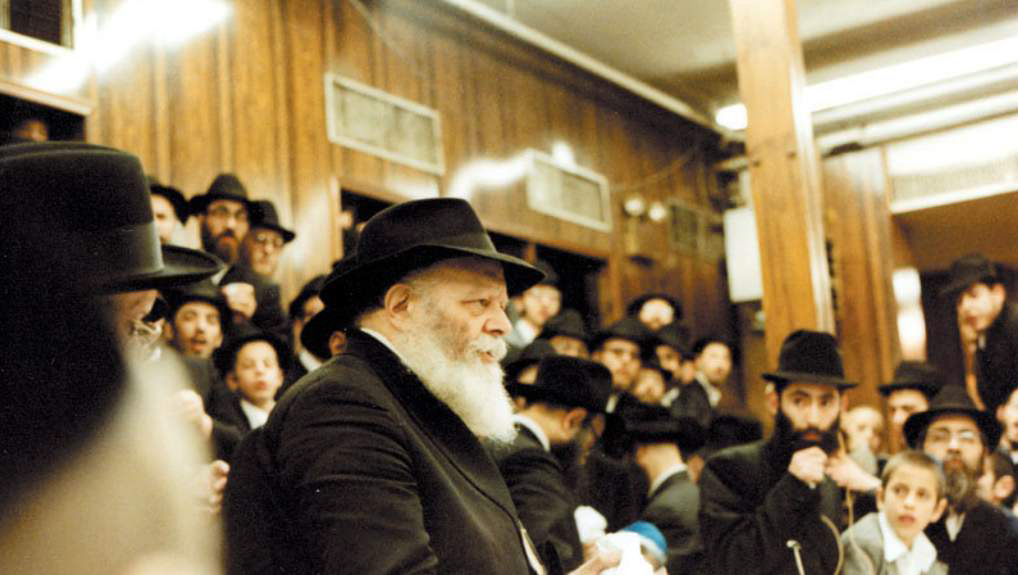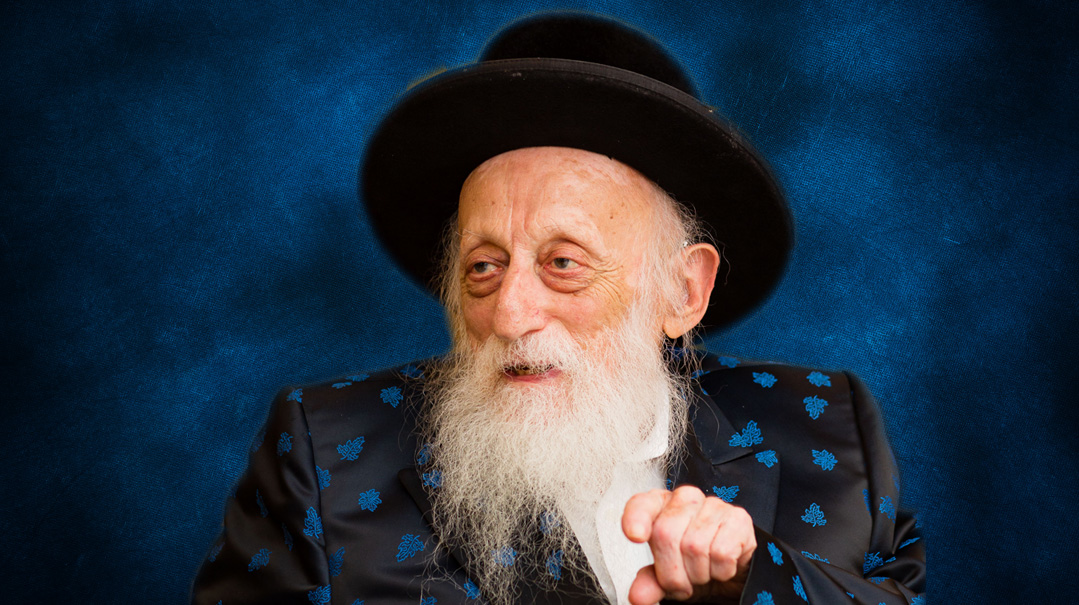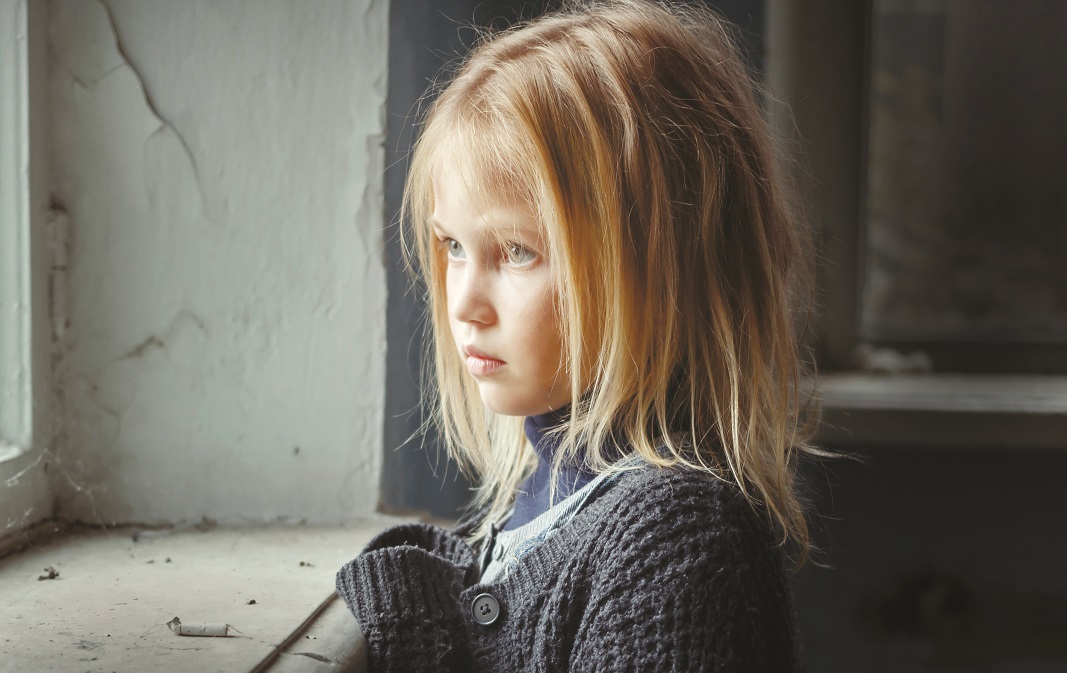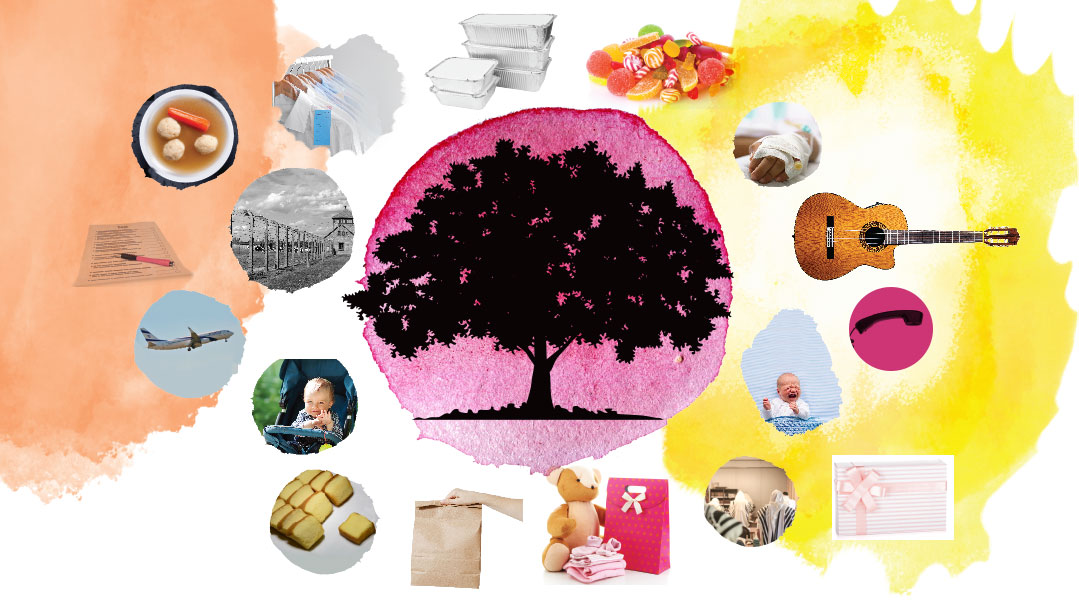Blessed

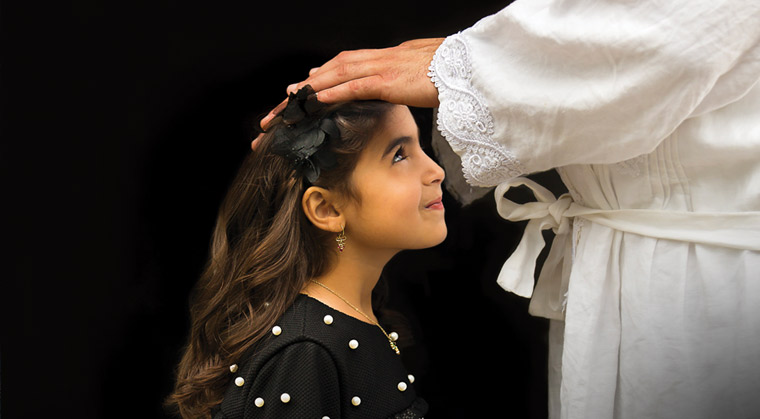
Bounty of Blessings
Faigy Peritzman
My father z”l was a bona fide bentsher. Most fathers bentsh their kids Friday night. My father bentshed us Friday night, Shabbos morning, and after Havdalah.
These brachos were said with deep kavanah, each word exuding love. When he’d finish, he’d tousle our hair and give us a hug and kiss.
Besides the thrice-weekly benedictions, my father bentshed us any time we left the house overnight, and at the end of every long-distance phone call.
As a child I didn’t appreciate this bounty of blessings. It wasn’t that I didn’t want his brachos. I valued the power of his tefillos. These were Top Grade-A Quality benedictions, I knew that. I just felt overwhelmed at the quantity.
When my father bentshed me before my chuppah, I was bawling. But I still didn’t relish the weekly closures to my phone calls or the tousle of my sheitel when I’d visit.
That all changed several years ago, when my parents celebrated a milestone anniversary. We kids pulled out all stops, coming in from Eretz Yisrael and around the States to descend on our childhood home, replete with all the old arguments and rivalries. Some things never change.
That Shabbos was incredible — a celebration of a marriage and the generations it had produced. (Excerpted from Family First, Issue 609)
Future Light
Chaia Frishman
The annual Ezra Academy shabbaton weekend was predictable.
The forecast called for tundra-like conditions. There would be a kumzitz with Rabbi Shmuel Brazil, and the Melaveh Malkah entertainer would hypnotize Mrs. Hirschman, our beloved secular studies principal. Yet the highlight of the weekend was Shabbos afternoon, when we’d visit Rav Shlomo Freifeld ztz”l.
There was a lot of walking, to be sure. The trek around Far Rockaway included davening in the original Sh’or Yoshuv building followed by a meal of roast chicken and potato kugel. After the oneg, we walked home in groups of two and three to sleep at the wonderful host families, role models for our future homes.
It was a short Shabbos, the day flew by. Before we knew it, we were there, at Rav Freifeld’s home. We weren’t given any preamble about the holy tzaddik we were about to visit. In fact, I don’t know if my preteen mind would have appreciated hearing about his greatness. Visiting Rav Freifeld was just… what we did.
Rav Freifeld and his Rebbetzin greeted us, a hock-shlock group of gawky teenagers, with the same warmth that grandparents greet the out-of-town grandkids on their yearly visit. (Excerpted from Family First, Issue 609)
Daddy’s Girl
Keren Harre
It’s Shabbos and my students are sitting on the living room couch, looking through the wedding album that has been gathering dust on the shelf. A former centerpiece, in the whirlwind of Real Life it’s now rarely brought out, save for by my bright-eyed seminary girls, intent on the promise of their futures so close they can almost touch it.
At this moment, they live vicariously through the pictures.
Flip. Flip. Flip.
I hear a collective sigh, carrying with it hopes and dreams and perhaps even a whiff of jealousy.
“Wow, you look gooorgeous,” they gush, “and so young.”
Pause.
Now they stare.
I know, without even glancing down, which captured moment they are living through. It is an objectively beautiful shot: My eyes are pools of sparkling emotion as I look up at Daddy, grasping his forearms tight as he gives me a heartfelt brachah. I am a cloud of white, floating in joy and euphoria, tethered only by Daddy’s strength.
Pause.
Screeching violins.
Flip, flip, flip.
But the violins continue on in my head, quietly now, as the girls continue to idealize and idolize.
What they will never know... (Excerpted from Family First, Issue 609)
Full Arms
Riki Goldstein
The smell of lavender-scented sponja — the smell of Friday — lingered on the scrubbed steps, even as freshly dripped ices slowly turned them sticky.
Each week after Lecha Dodi, I’d strap my toddler into the stroller and walk down to the tranquil streets. Shabbos dresses bobbed over jump ropes. Boys milled around the traffic circle, walking its sloping walls as though they were the ramparts of the holy city.
My little girl would run ahead, watching gaunt cats pounce on food scraps in the bags that spilled from green dumpsters. As we neared the nursing home, we’d see an old Russian lady in sneakers, feeding crusts of bread to the cats. “Shabbat Shalom!” we would sing. Her reply was a shower of love-words on my little one’s head.
Up the ramp, under the drooping shesek trees, and we’d start to meet “the Savtot” — our elderly friends. One woman had the same name as me. One woman used to be a teacher and liked to give my kids plain cookies — “Even though you have at home! This way they feel they earned something, it gives them joy!” The woman in the crimson sweater ignored us each week. One woman spoke no Hebrew, English, or Yiddish — only Spanish. One woman asked each time if I remembered her name. One woman had a son in Florida, and there was one French woman, for whom I dusted off the smattering of French I’d learned in school. (Excerpted from Family First, Issue 609)
A Blessing on My Head
Millie Samson
Blessing our children has become a weekly joy — my way of infusing their week with love, an affirmation that we, their parents, not only care, but are with them every step of their lives.
Even when we’re oceans apart, my Shabbos preparations are incomplete without my imparting those words over the phone. I envisage my hands on their heads, my kiss brushing their foreheads.
Our parents had no such vocabulary of love. The older I get, the more I wish I had plucked up the courage to ask my father for a brachah — but somehow, the opportunity never presented itself. For a long time, I felt a hole inside, where I longed for his hands on my head and his words of blessing.
It was our first Succos in Eretz Yisrael. Ignoring our children’s warnings that the Kosel plaza would be too crowded, that with my limited mobility I could get pushed over, or that I wouldn’t be able to see, hear, or enjoy the experience, we joined the throngs of people pushing their way into the Kosel plaza for the communal Bircas Kohanim.
The Kosel was more crowded than I could ever have imagined, filled with the ebb and flow of a cornucopia of people from every walk of life. The sun beat down. I could feel the heat through my shoes. The railing behind me was almost too hot to touch, but I felt safe beside it. While I waited, my tattered Tehillim fell open at my favorite perek, “My help comes from Hashem.” (Excerpted from Family First, Issue 609)
Part of the Family
Chani Muller
Shabbos with my future in-laws loomed ahead, and I spent the week churning with anxiety.
What to wear? How much jewelry to put on? What kind of bag to pack in? I wouldn’t be sleeping in their home, so how much time was I supposed to spend there? What if I wouldn’t want to eat anything? (I was a notoriously finicky eater.)
I ended up having a wonderful Shabbos, and it was much more comfortable than I’d anticipated. What I wasn’t expecting, though, were the awkward moments after the men came home from shul Friday night. I had been sitting on the couch, schmoozing with my future mother-in-law and sister-in-law, when my father-in-law walked in, followed by my chassan and his brothers. I shyly said hello to my chassan and sat back down as the men began singing Shalom Aleichem.
They finished singing, but instead of moving on to Kiddush, all the children got up and went to both parents to get a brachah. In my parents’ home, brachos were given only by my father and only on Erev Yom Kippur, so this was very new to me. Although I found it touching, I felt really uncomfortable. Was I supposed to get up and ask for a brachah?
My mother-in-law picked up on my discomfort. “Don’t worry,” she told me. “You’re just engaged. We’ll start after the wedding.” Relieved, I sank back into my chair and returned to observer status, feeling a flutter of excitement as I thought about getting married and participating in this beautiful family ritual. (Excerpted from Family First, Issue 609)
A Parent’s Blessing
Leah Gebber
A crown of two hands. A garland of fingers. Prayer and love, love and prayer.
Shabbos brachah.
When I was a child, my father would close his eyes, raise both hands above his head as if drawing down a Heavenly spirit, and declare, in both Hebrew and English: “Yivarechacha… May He shine His face upon you… May He bless you with shalom, peace.”
In a realm of its own, not part of the Shabbos seudah with the bickering over places or the crispiest potato or who copied whose devar Torah. In a realm of its own, impervious to the vicissitudes of a relationship, a child’s anger, or a parent’s frustration.
The brachah spilled over from Shabbos and became the marker of each farewell. Every school trip was preceded by two hands placed on my head, the words spoken. Before heading off to camp, I bobbed my head in front of Daddy and Mommy, to receive the holy words of parting. In seminary, I was bentshed over the phone. During a hospital stay, my mother cajoled a nurse into wheeling her to a coin-operated phone, where she coaxed out the words. “May Hashem bless you…”
I didn’t know what it was like to live without this until Erev Yom Kippur in seminary, when Rabbi Kohn explained that years before, come Erev Yom Kippur, a girl from France had approached his father, the founder of the seminary, Mr. Dov Kohn, and asked the plaintive question. “But who will give us a brachah?”
(Excerpted from Family First, Issue 609)
Oops! We could not locate your form.







